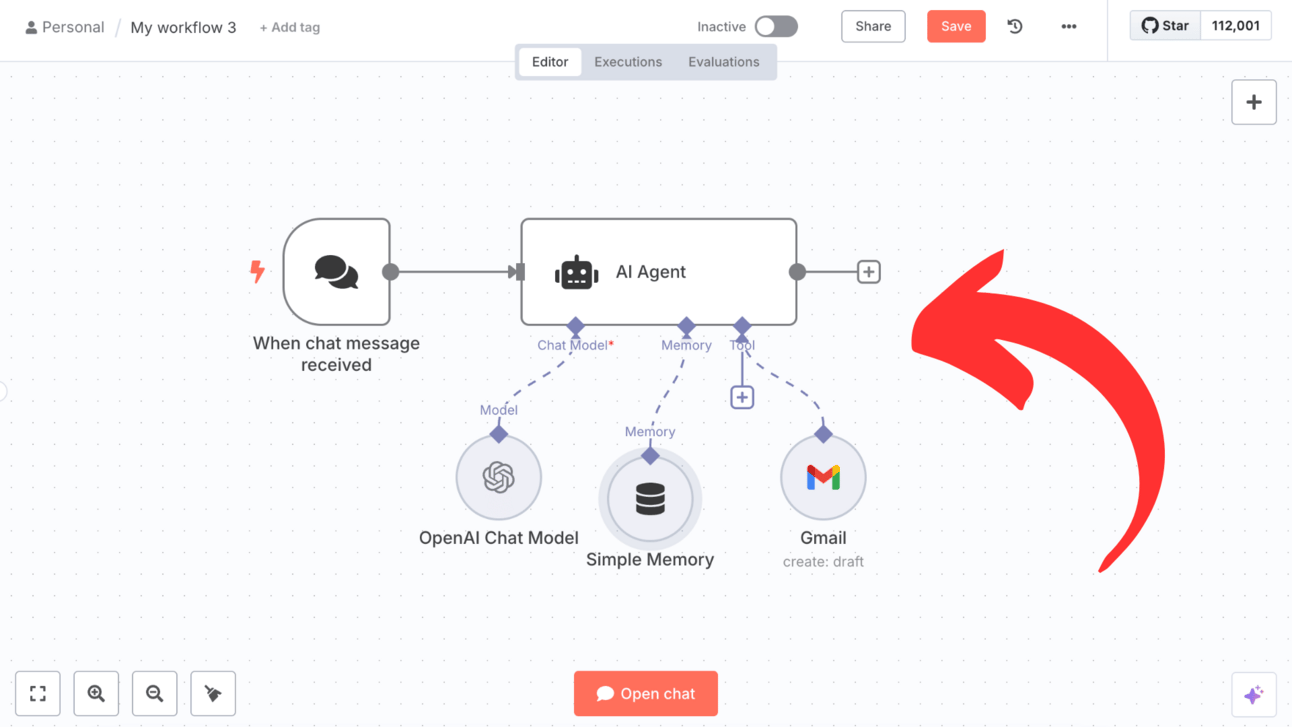Good morning, {{ first_name | AI enthusiasts }}. Google DeepMind just compressed decades of genetic research into a four-hour training run, and the result could change our understanding of disease.
With the new AlphaGenome model quickly predicting mutation effects across 1M-letter DNA sequences on GPUs instead of in the lab, the ability to pinpoint diseases at their genetic source is suddenly within reach.
In today’s AI rundown:
DeepMind’s AlphaGenome for DNA analysis
Google drops open-source Gemini CLI
Build your AI assistant with automated workflows
Anthropic adds app-building capabilities to Claude
4 new AI tools & 4 job opportunities
LATEST DEVELOPMENTS
GOOGLE DEEPMIND

Image source: Google DeepMind
The Rundown: Google DeepMind just released AlphaGenome, a new AI model that predicts how DNA mutations affect thousands of molecular processes by analyzing sequences up to 1M base-pairs long.
The details:
The model reads DNA stretches 100x longer than older tools, predicting how nearby genes will behave and how other regulatory regions function.
The release unifies thousands of molecular predictions into one tool, while still beating out most specialized models across a range of genomic benchmarks.
Researchers tested it on leukemia patients, helping identify how specific mutations switched on cancer-causing genes that should have stayed silent.
DeepMind trained the entire system in just four hours using public genetic databases, consuming half the computing power of their previous DNA model.
Why it matters: AlphaGenome moves complex biological research from the lab to the computer, letting scientists test genetic hypotheses at an unprecedented scale. While not a crystal ball for personal health, it gives researchers a powerful first guess, dramatically speeding up the search for mutations and variants that cause disease.
TOGETHER WITH SANA
The Rundown: Sana Agents is where teams go to work with AI. Co-create flawless reports, decks, and dashboards — automatically built from your live company data.
With Sana Agents, you can:
Work inside one hub that merges search, notes, canvases, workflows, and agents.
Hand off docs, slides, sheets, and tickets to AI that drafts and updates them end-to-end
Get precise answers grounded in your data and wrapped in enterprise-grade security

Image source: Google
The Rundown: Google just released Gemini CLI, a new open-source terminal agent that brings Gemini 2.5 Pro directly to developers' command lines with high free usage limits.
The details:
Developers get 60 requests per minute and 1,000 daily queries at no charge, limits that Google set after doubling its own internal usage patterns.
The Apache 2.0 licensed tool supports Model Context Protocol, bundled extensions, and custom GEMINI.md files for project-specific configurations.
Other built-in capabilities include Google Search grounding, file manipulation, command execution, and Imagen/Veo integration for multimedia generations.
CLI is integrated directly with Code Assist, leveraging Gemini 2.5 Pro and its 1M context window — currently the highest ranked model on the WebDev Arena.
Why it matters: The battle for AI developer adoption just got even more competitive, with Google weaponizing free access against OpenAI and Anthropic’s paid competitors. With generous limits and the open-source move addressing enterprise security concerns, Google hopes to shift dev workflows entirely into its ecosystem.
AI TRAINING

The Rundown: In this tutorial, you will learn how to create a personal AI assistant that can draft emails, manage tasks, and handle requests using n8n's ability to connect AI models with your favorite apps.
Step-by-step:
Head over to n8n and create a new workflow with a chat trigger
Add an AI Agent with your preferred model (GPT-4, Claude) and a Simple Memory
Connect your apps (Gmail, Calendar, Slack) and set parameters to “define automatically by the model”
Add custom instructions: “You are a helpful assistant with access to email and calendar tools. Use them when users make requests.”
Pro tip: Start with email drafting and calendar management, then expand to document creation and data analysis as you get comfortable.
PRESENTED BY IBM
The Rundown: IBM understands the challenges your organization faces in getting data ready for AI, and the company’s new “Data Matters” chapter breaks down how to turn scattered, messy information into high-octane fuel for models.
Inside, you’ll discover how to:
Turn structured & unstructured data from a variety of sources into high-quality data for AI
Overcome barriers to data preparedness
Create a consistent methodology to assess the quality of your data
ANTHROPIC

Image source: Anthropic
The Rundown: Anthropic upgraded Claude with new app-building capabilities, allowing any user to create, host, and share interactive AI-powered apps directly from simple text prompts via its “Artifacts” workspaces.
The details:
Users can now build functional tools like data analyzers or study aids simply by describing their idea, with Claude handling the writing of all underlying code.
The platform shifts costs to end users who sign in with Claude credentials, eliminating the need for creators to manage API keys or pay for others' usage.
Free tier users can create and share apps while Pro ($20/month) and Team ($25-30/month) subscribers unlock advanced features and higher usage limits.
Anthropic said over 500M artifacts have been created since launch last August, now with a dedicated space on the platform for better organization.
Why it matters: While Claude’s models are still highly preferred by developers for coding tasks, Anthropic’s Artifacts also help continue the vibe coding push — with smooth UI and ecosystem upgrades that push users to keep building naturally regardless of developer experience.
QUICK HITS
🗣️ ElevenLabs App - Powerful AI voice tools, now available on mobile
✈️ Airtable AI - Build enterprise apps that automate and manage operations
🤖 Gemini Robotics - VLA model that works locally on robots, without internet
🛡️ XBOW - Boost offensive security with autonomous AI
🎨 The Rundown - Designer (Brand & Platform)
🛡️ Horizon3 - Senior Product Manager
🗣️ Rad AI - Senior ML Research Scientist
💼 Perplexity AI - Finance Manager
Postman launched a new AI-Readiness Hub with a 90-day plan and dev toolkit to help make your APIs agent-ready.*
Higgsfield AI released Soul, a new “high-aesthetic” photo model with advanced realism and 50+ presets for easy style optimization.
Creative Commons unveiled CC Signals, a new opt-in metadata system for dataset owners to spell out exactly how AI models may reuse their work.
ElevenLabs introduced Voice Design v3, featuring new upgrades for more expressive voice outputs and support for over 70 languages with accurate accents.
OpenAI released new Connectors for Pro ChatGPT accounts, giving users the ability to integrate data from tools including Google Drive, Dropbox, SharePoint, and Box.
Getty dropped its lawsuit against Stability AI that accused the company of copyright theft, following a “fair use” ruling in a separate case by authors against Anthropic.
Amazon announced new AI features for its Ring home security systems, including AI-generated video descriptions that provide users with real-time text updates.
*Sponsored Listing
COMMUNITY
Join our next workshop this Friday, June 27th, at 4 PM EST with Dr. Alvaro Cintas, The Rundown’s AI professor. By the end of the workshop, you’ll be able to confidently build and run your own automation agents using n8n.
RSVP here. Not a member? Join The Rundown University on a 14-day free trial.
That's it for today!
See you soon,
Rowan, Joey, Zach, Alvaro, and Jason—The Rundown’s editorial team






